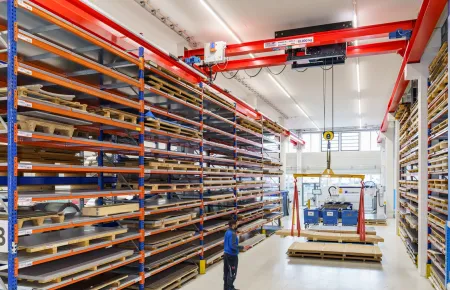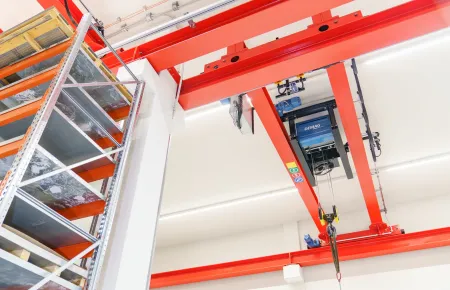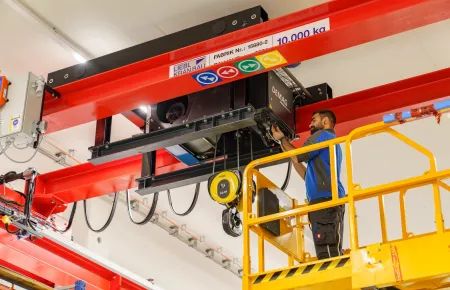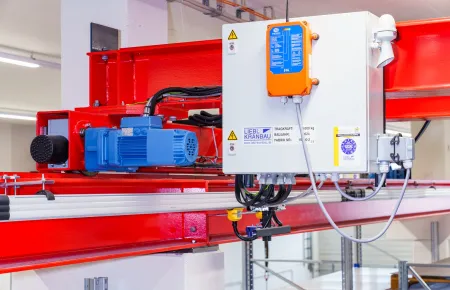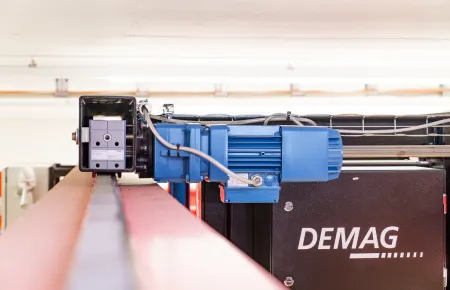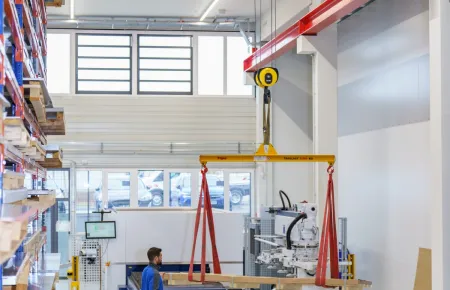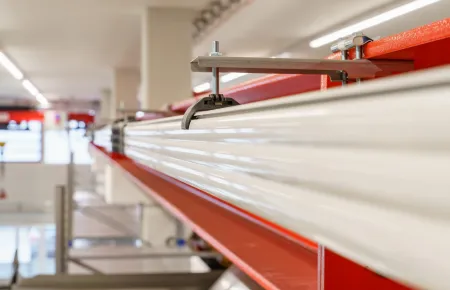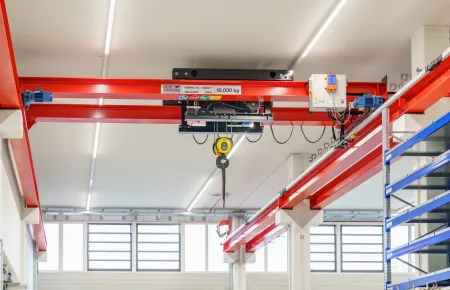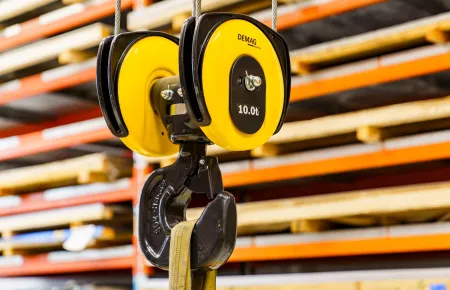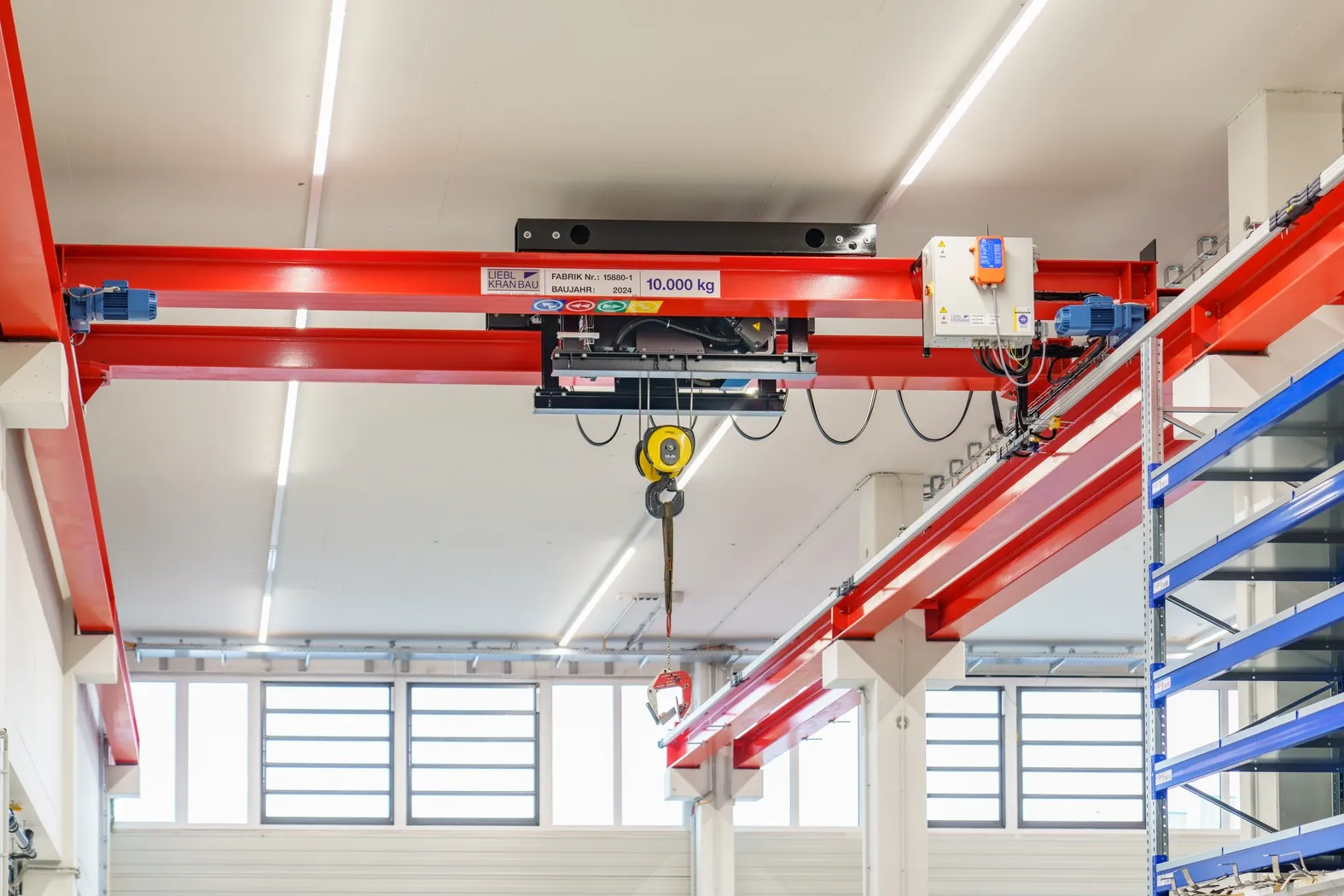
From sheet metal storage to laser processing
Large-format insulation systems
Tailor-made and compact crane concept with Demag crane components
The company
Power plant turbines, paper machines, combined heat and power plants, exhaust systems…: many large and very large machines and systems are put into housing as part of their final production step. There are several reasons for this: reducing noise levels, providing the necessary insulation against heat and cold, ensuring fire protection and protecting the respective machine from moisture. In any case, the insulation systems are manufactured and assembled on a tailor-made basis based on individual project planning.
One of the few specialists in this challenging field of special machinery and plant engineering is EUGEN ARNOLD GmbH in Aichtal, Germany. The production of the housing usually starts with laser processing of (stainless) steel sheets, which are not only cut to size, but also shaped three-dimensionally, provided with openings and recesses and then glued and connected with insulating materials. The company assembles the housing on site worldwide. ARNOLD's mobile on-site mechanical processing is the specialist's after-sales service to ensure high-quality insulation worldwide at all times.
Requirement
As part of a new building project, ARNOLD had a new sheet metal warehouse built in which the stainless steel sheets are stored in a wide range of variants to save space.
A forklift removes the pallet with the corresponding raw sheet from the rack and places it on the floor. According to material flow planning, the next step – transporting the individual sheet metal parts to the laser processing system – should be carried out overhead efficiently and safely using a crane. After cutting, the material is further processed at the adjacent workstations.
ARNOLD commissioned the material handling technology experts at Liebl Kranbau GmbH to plan and build the crane.
The solution
The clear layout of the warehouse made planning easier. The laser processing system is located directly in line with the warehouse aisle. The Liebl crane experts were therefore able to design a crane that positions the metal sheets directly on the system's table. The precise handling of the flat sheets by radio control saves time and secures the laser processing system by providing the right angle of view to the target zone.
The cranes each have a track gauge of xx metres (?) and are compact in design. The crane runway runs precisely over the long goods racks and the trolleys are a special construction by Liebl to make optimum use of the ceiling height and make full use of the 12-metre lifting path.
When designing the two cranes, the Demag partner used the modular design system. The crane travels on DRS-M 125 wheel blocks driven by AMZ 30 angular geared motors with ZBA 90 brake motors. The power supply is provided by a DCL-Pro compact conductor line with centre feed. It consists of pre-assembled, plug-in modules and is characterised, among other things, by a long service life.
A Demag DVR rope hoist with a load capacity of 10 tonnes was selected as the hoist unit. The loads can be handled at two speeds: 5.00 m/min when transporting the sheets to the processing unit and when returning to the storage unit; 0.80 m/min when positioning the sheets on the table of the laser cutting unit.
Special features
The small distance between the top shelf and the hall ceiling required the design expertise of Liebl Kranbau. Managing Director Franz Liebl: "A standard trolley – no matter how compact it is – would have been too high here. We therefore used a DVR rope hoist as a foot-mounted hoist and combined it with a custom-made, self-constructed trolley. This allowed us to make optimum use of the conditions in the warehouse aisles."
This concept, comprising a combination of high-quality standard components from the versatile Demag product portfolio, a compact crane bridge ‘made by Liebl’ and a customised crane trolley based on a Demag foot-mounted hoist, has proven itself to the satisfaction of the operator since commissioning.
Liebl Kranbau GmbH
Liebl Kranbau GmbH has an excellent reputation in the industry and stands for decades of experience and innovative system solutions. And, of course, for Swabian entrepreneurial spirit and unbridled ingenuity. Since the company was founded in 1997, it has been steadily expanding under the management of its founder Franz Liebl. In Ostfildern near Stuttgart, the family-owned company develops innovative and customer-oriented system solutions for crane and handling technology, which the crane manufacturer then produces, installs and maintains at the customer's premises.
Image gallery
Image gallery
